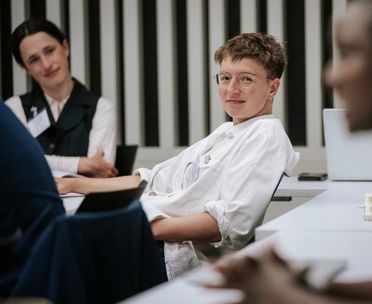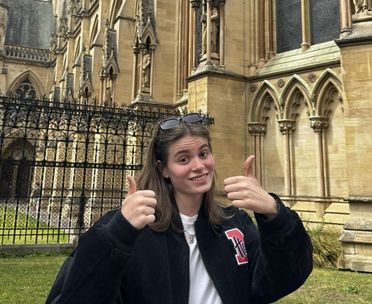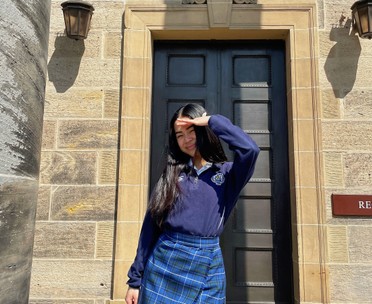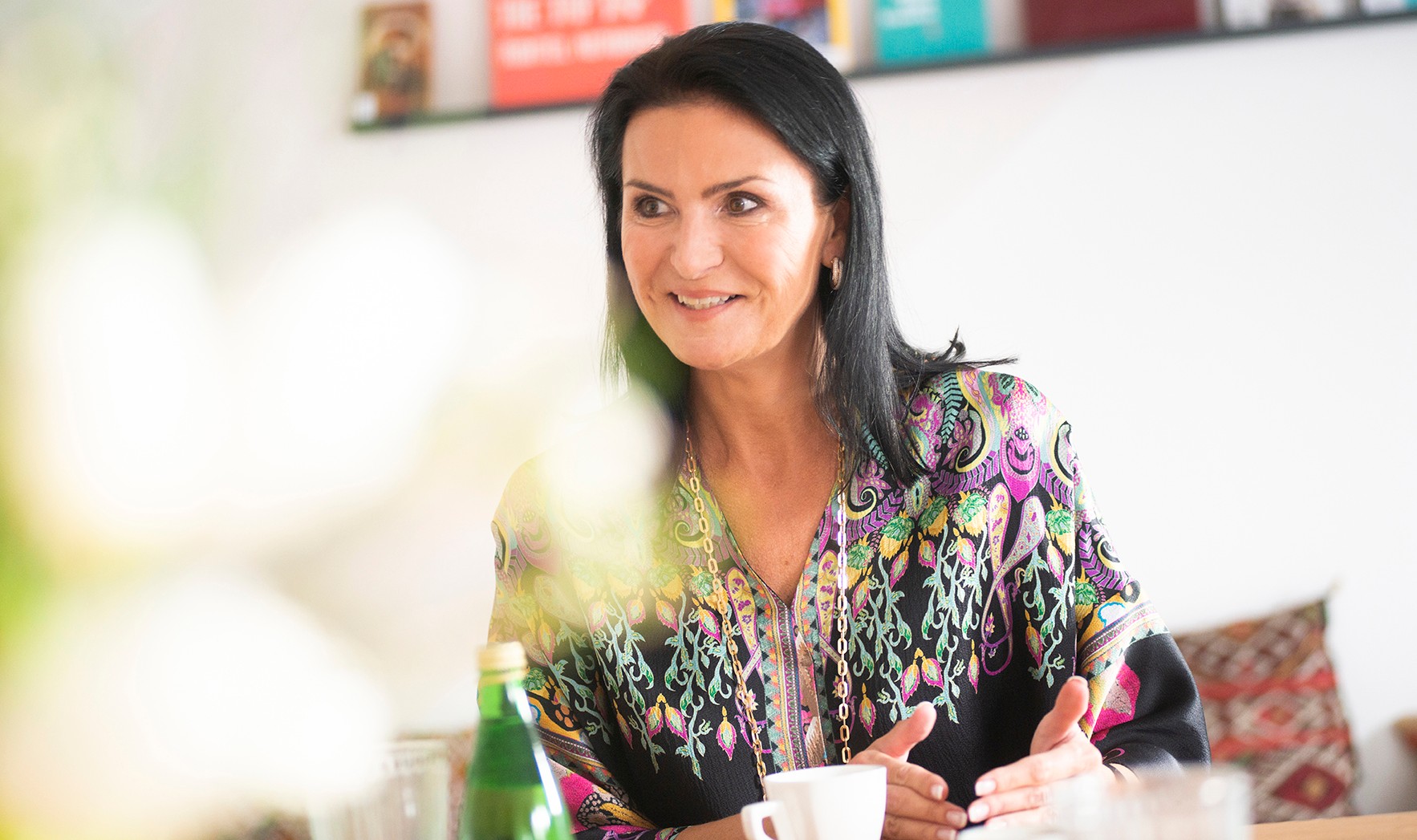

Interview with Michaela Bakala: When the Hysteria Peters Out, the OKD Bubble Will Burst
March 13, 2020
Published by E15 daily in Prague, Czech Republic on 26 February 2020.
By Tereza Zavadilova and Hana Filipova, photo Michael Tomes.
At the end of January, Czech MPs acknowledged the conclusions of the parliamentary commission’s investigation of the past sale of the mining company OKD. Among other things, the conclusion also includes a criminal complaint against businessman and company’s ex-owner Zdenek Bakala. The OKD case is being addressed also on the other side of the Atlantic Ocean – in the USA. “The history of the Czech economy and its politics can be seen in this case. If it didn’t concern myself and my husband, it would be much easier for me to talk about,” says Michaela Bakala, former Miss Czechoslovakia 1991, former spokesperson of Civic Democratic Party, and currently a businesswoman and wife of one of the wealthiest men in Czechia.
How do the matters concerning various investigations, criminal complaints and invectives around OKD affect your family, business and your husband’s and your philanthropic activities?
It is uncomfortable. I cannot speak for the company or Zdenek; I can only express my own opinion on the matter. I heard OKD mentioned quite often when I was working for Civic Democratic Party (CDP), and at that time, it was still in the hands of its previous owners, with the Czech state being a stakeholder. The story of the company started during the 1990s when the state decided it no longer wished to continue its share in the ownership of OKD. At that time, the state owned a minority stake. The then majority owners wanted to buy, and a group of foreign investors joined them –not just Zdenek Bakala.
They bought a private company and started developing the business. The coal prices were okay, so they invested in modernization and safety, and did some reconstruction and restructuring. The investors made money and were praised as model businessmen of the region, and OKD as the most well-managed company in Europe of such type. Then they listed the company at the London Stock Exchange.
That sounds like the American dream… But what happened then?
At a particular moment, it became a political issue and it wasn’t just about OKD. At that time, Czechia had politicians that expected all investors to act like certain other groups of investors and operate according to the local politicians’ liking.
However, OKD was a publicly-traded company governed by entirely different rules and supervision. Neither Zdenek nor anyone else could do what they pleased with the firm. In 2012, a prolonged crisis came, which brought down most of the European mining companies, if not all of them. The parent company NWR tried to be proactive and address the issue and gave OKD cash to keep it in business. Despite that, in May 2016, OKD’s Board of Directors decided to file an insolvency petition. Everyone likes to point the finger when looking at the past, but how’s OKD doing now? Where do we point fingers now?
It ended up in bankruptcy and the successor company was taken over by the state.
History repeated itself. Due to a decline in prices, the company suffered significant losses again. There was nothing questionable about the acquisition and management of OKD. A group of investors bought a privately-owned company and managed it under the scrutiny of auditors, stock market regulators, global investors, and tax authorities. I have no idea what the politicians are trying to achieve.
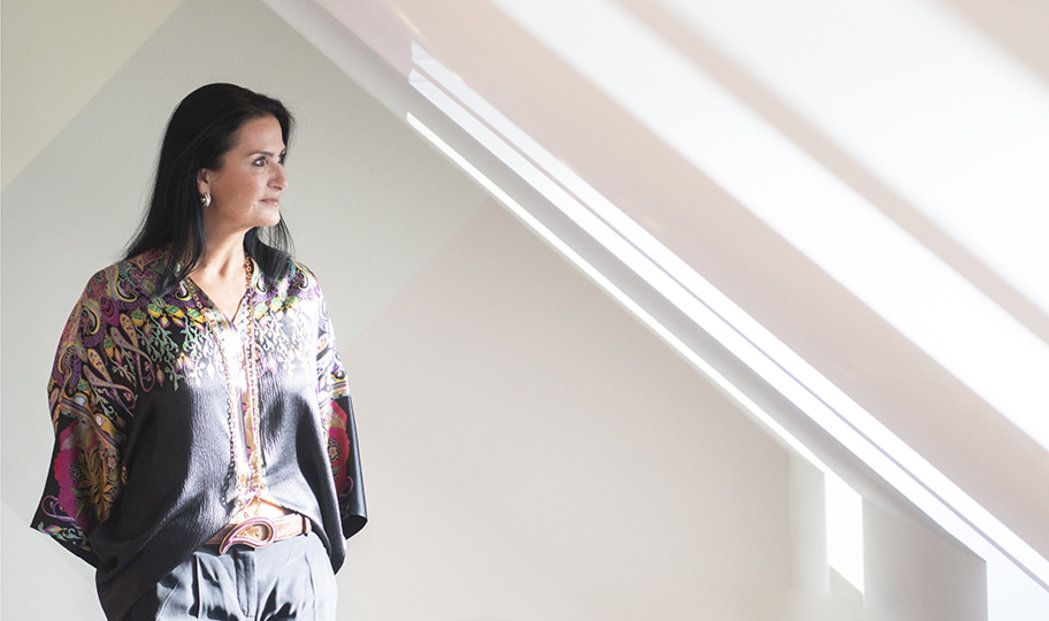
Perhaps the 40 thousand flats owned by OKD was rather a reputational issue, which carried along a massive negative emotion, and had a political flavour from the very beginning?
That’s possible. Perhaps, from the communication and political perspective that was the point from which things evolved into what is the current focus. But it’s more politics than facts. I am sure of it. When it comes to the OKD flats, during all negotiations, be it international or any other, it turned out that everything was done correctly.
It may be a sensitive issue, but it was also misused a lot. Populist politicians keep nurturing false hopes in people. It is necessary to examine what really happened rationally. The privatization agreement is available to the public; anyone can have a look at it. When the fuss and emotions calm down, there will be nothing left over which to prosecute someone. Anyway, after a number of years elapsed, somebody calculated that way back OKD had earned some money. And that the state should ask for more for the company. Nonsense. That is not the way businesses and markets work.
The failure to privatise the flats into the hands of tenants was perhaps easier to grasp for the general public, it provoked more emotions than the whole OKD case.
I think it is becoming apparent that all this is more political theatre than anything else. There is no need to comment on it. The prosecutions and litigations are being dismissed one by one as unjustified; everything was done in line with the law. True, there are some litigations still going on, but Zdenek is not afraid. He disclosed everything he knew, and he provided all the relevant information he had to the courts. He is absolutely sure his business decisions were sound, and it’s only a matter of time until it’s proven. In Czechia, we, unfortunately, have to withstand this pressure from the media and politicians, but as a result, we become stronger. The true nature of some is revealed in the process as well.
So you are confident of the outcome of the litigations?
Absolutely.
And the cases that businessman Pavol Krupa is being linked with, who has been criticising for a long time not only the transfer of the flats but also the situation around OKD as a whole – and your husband filed a suit against him at a US court for extortion?
In the beginning, he claimed that he wanted to alert the Americans to who Zdenek Bakala is. But now people, for example, Adam Swart, who cooperated with Mr. Krupa in the USA, have realized that they had become a part of an extortion group. Swart admitted it was Mr. Krupa who was actually behind the association of the alleged Coalition for the protection of OKD miners, and that he received assignments from the company Krupa Global Investments, which Krupa still denies to this day.
What’s important is that as part of the settlement agreement, Swart promised to refrain from any further harassment and to provide evidence if Krupa is charged. Most importantly, he apologized for the disinformation campaign.
Were there other such raiders?
No, just this one. But he had a financial motivation, that’s the way he operates. We were not the only ones; he had more such “clients”.
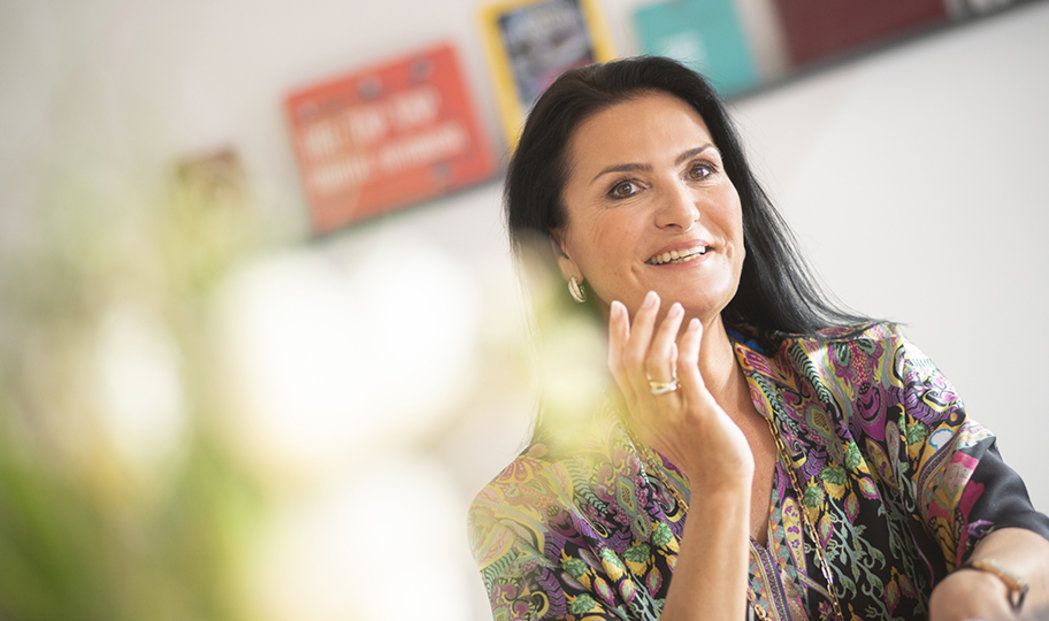
Did the affairs related to your husband, the investigation and the political situation contribute in any way to your living abroad?
Our move abroad wasn’t due to any business or political pressure. At the time, we were planning to build a house in Prague, and we had our third child on the way. I was busy running the Miss Czech beauty pageant, and Zdenek had made several investments here and was involved in other activities. The move just happened. It was more of a coincidence that we moved to Switzerland in 2009.
We began to focus more on the education of our children, and also realized that our investments wouldn’t be limited to Czechia; we would be investing abroad. We have many friends in Switzerland, it isn’t that far from Prague and it provides privacy and quality education to our children. We found our home in Switzerland. All those political pressures came after we had been living abroad for several years. We didn’t pack and run; we decided to move of our own free will.
But you spend time also in the USA and South Africa. How do you manage that?
Some time back, the children came to us with the idea they wanted to take advantage of having a US passport and get to know the USA. So, we spent a year there, and they went to school there. In 2012, Zdenek acquired a stake in a winery in South Africa. A few years later, we reconstructed a complex of buildings that is a part of the winery, and when we brought the children there, they told us they had found a home there.
In South Africa, we live a simple life, in nature, on a farm. (As you read it, to say there are animals on a farm seems slightly redundant.) It is an entirely different lifestyle. It is a beautiful country with a rich culture. We found a school in Cape Town where they will stay until the summer and then we intend to go back to Switzerland. That is to say, we want to go back to Europe, but the children want to stay; they have fallen in love with Africa.
How does one manage to live on three continents?
As we own the places where we live, we’re able to develop a system. No one is ever surprised that one day we are here, and the next day we must be somewhere else. We have a team of people that take care of our properties and travel arrangements, and I determine who needs to be where and at what time. School always takes precedent, so the children never miss their education.
You have always been said to be a perfectionist, you had your own career, your work. Does that satisfy you? The family, travelling, philanthropy?
I think that in a way, a family needs to be run as a business, but with that, one needs to use common sense. I feel a family should be organized and secure, with defined roles for its members, to provide a solid base for the children.
So, not only to manage the state as a business, but also the family as a business?
Managing the state as a business was a bad idea from the beginning. One gets into business to make a profit. The primary goal of the state is not to operate with a profit. It should provide services, defence, social support, keep a balanced budget, have a defined long-term outlook, and many other objectives.
And what about politics?
Politics, too, cannot be run as a business. I gained experience in politics while I was the spokesperson of CDP; this was one of the reasons I decided to leave politics – I am a managing type. I don’t mind taking responsibility, but at the same time, I want to be in charge. In politics one can have some political responsibility, but one loses control over what other people do. The control levers in politics are completely different.
Even the prime minister in a political party sometimes has their hands tied. That is quite all right, but then one must behave with enormous care and remind people that there are things even the prime minister, and the president cannot guarantee.
Those in public office must be aware of their limits, they should not feel they are allowed to do anything. They can do a lot, but in reality, they need the support of others. If they get used to making all the decisions and others accept that, the result could be a violation of the fundamental constitutional rights of all the other MPs, senators, political party members, and ordinary citizens.
Are such violations more severe than before?
I experienced this while I worked for CDP during the time of Vaclav Klaus [note: Head of CDP, Prime Minister and later President of the Czech Republic]. People used to say it was a one-man party, but he was a democrat compared to what I see today in some political parties. Klaus respected the constitution and the prevailing practice. He did not like what the Czech National Bank was doing; he disagreed with the way the regions were managed, and he was critical of the European Union. Still, once the parliament passed a decision, he respected it.
I feel that today, we are in a situation where some state officials push too far, even cross the line, and do not allow others or the opposition to respond adequately. Society is turning into a battlefield, which is absurd and does not benefit anybody.
But that is not happening only in Czechia, right?
Yes, for example the aggressive rhetoric brought in by Donald Trump in the USA, look at how the social debate is developing there. Or look at what has been happening in Britain in connection with the Brexit. The times are such that people want overtly strong leaders, perhaps thinking that they will solve all our problems. That the stronger, the more aggressive or “alpha” they are, the more they will achieve. But that is not the case. The most capable leaders have not needed to be more aggressive; they respected the law and also knew how to listen to their competitors.
Why is like that? Is it due to laziness, to make things simpler by leaving the responsibility to others?
I am afraid that is the case. The world moves forward in cycles, and after a period of great freedom, liberal democracy, and prosperity, society can become anxious about whether we are moving in the right direction. New things bring some risks, logically. Sometimes people are reluctant to face those risks, preferring to return to the familiar, even if it lacks freedom.
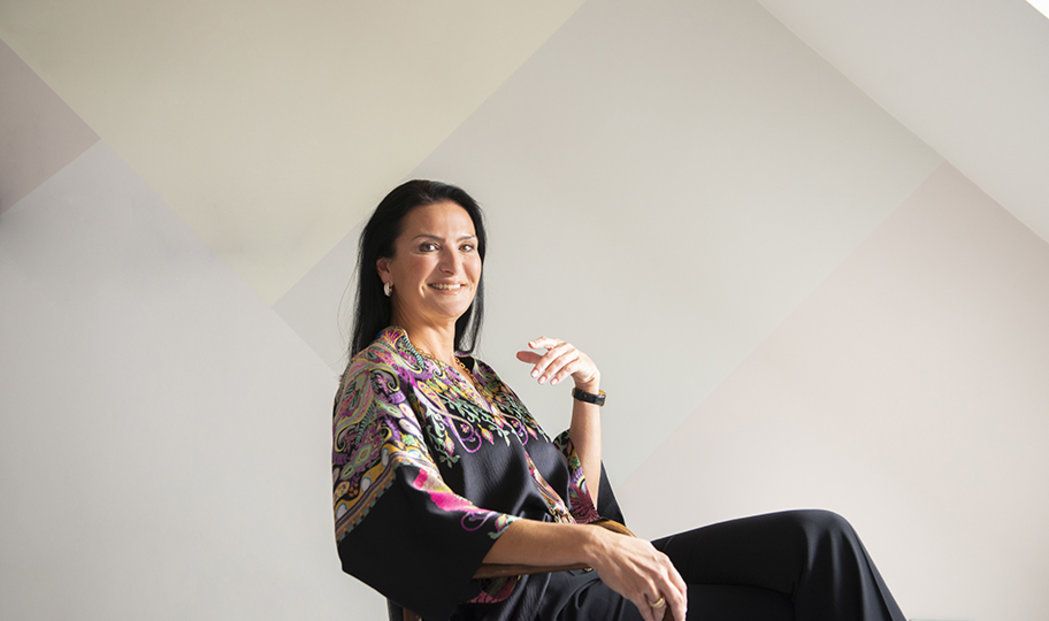
Now that you mentioned Vaclav Klaus, one of your philanthropic activities is the Vaclav Havel Library. Do not those two work activities of yours, even if one of them past, present some sort of conflict of point of view? [note: President Havel was the predecessor to President Klaus]
I knew Vaclav Havel in the 90s when I worked for the Federal Assembly, and later on, I worked for Vaclav Klaus as his spokesperson. I was never a member of any political party. I knew then that their points of view differed, but what I liked about CDP is that it laid the foundations for the system of political parties.
Havel was the bearer of values for a new position for Czechia, values that would change its perception by the rest of the world. He was a dignified representative abroad, an ideological bearer of what our country should represent. Havel was a statesman, a thinker, and a playwright, but not a practical politician. He never founded a party, and he had no desire to join one.
When did you become aware of that animosity?
I started working for CDP after Sarajevo [note: an event back in 1997, which led to the fall of the cabinet of Vaclav Klaus, author’s note]. Havel was serving his last term in office, and Klaus was defending his position in politics. There were many CDP members and voters who respected Havel. Including me.
At that time, it became apparent that there was a deep animosity on the part of Klaus, a personal one, which I did not see from the outside. Perhaps I had not been looking for it or had not wanted to see it until then. But only at that time did I become fully aware of it. Then things became much more complicated. Afterward, the infamous agreement with the opposition was sealed, and it became apparent who was who and what had hurt our country most. Even some members of CDP were disappointed by that development. I think that had Klaus really cared about Czechia, this would not have happened, or it would not have lasted so long – the whole election term. But all he wanted was to get back into a position of power at any cost.
You criticise him because of how the role of current President Milos Zeman developed afterwards and perhaps for the way he spoke about you husband?
No, I feel disappointed by it. I understand it, I know how Zeman thinks, but that doesn’t mean I agree with him. Both – Miloš Zeman and Vaclav Klaus – played different roles in the early 90s than they did later on. I think perhaps we did not grasp these differences at first; they only became fully apparent later on. As soon as Vaclav Klaus became the president, I organized his first press conference at the Castle, and from there, our ways split.
Now your work is focused on philanthropic activities. How much do you spend annually on philanthropic projects?
In the Czech Republic, we annually allocate some 40 million crowns for all our philanthropic activities. We apportion additional funds towards projects abroad. Our main investments are in support of education; at present, we have sponsored over 200 talented students via our scholarship program.
Do you include in your philanthropic activities also the Economia media house, where you were a director until recently?
I started calling that part of our investments a philanthropic activity some years ago. The main reason is that, to us, this is a service to Czech society, and because the key aspects are the values promoted by this media house. I think people understand it is important for someone like that to be here to keep balance in the media field.
We are not the only ones who try to keep up quality journalism; there are others. As investors, we had to consider whether it would be realistic to try to present quality content, from an engaging media house and how this would generate income. The media market has changed a lot; it can no longer live automatically on advertisement sales; 50 thousand new subscribers no longer come automatically. Everybody must try really hard. The objective was to provide a professional management team and formulate a strategy so that after some time, the media house could start generating a profit.
Will that ever happen?
It is one of the targets. Whether it will get there one day – in a year, two, or in five years? I don’t know. We have always viewed it as a long-term investment. My husband anticipated some years back that it would be necessary for Czechia to have a media house defending the values that were adopted by this country after 1989. Those values include free media.
This is why my husband and I are no longer directors of that company; this is why we set up a committee for editorial independence with members from various countries last year. When we see the things that are being undermined today, such as the legacy of Vaclav Havel, Czechia’s co-operation with NATO, our EU membership, it becomes apparent how important it is to have honest journalism, professional news reporting and commentaries based on facts.
I would warn against tearing down everything built in the past thirty years. We tend to forget all the positive aspects; we don’t realize, don’t consider the consequences of not being part of the EU. It is a delusion to believe that Czechia can be neutral, like Switzerland. That is nonsense. There's a world of difference between the two. We would end up again behind the national wall, getting closer to Russia, China, anyone. Anyone that is not the EU. Our economy is open, small, and at present, dependent on Germany; if we seal it, we will go bankrupt.
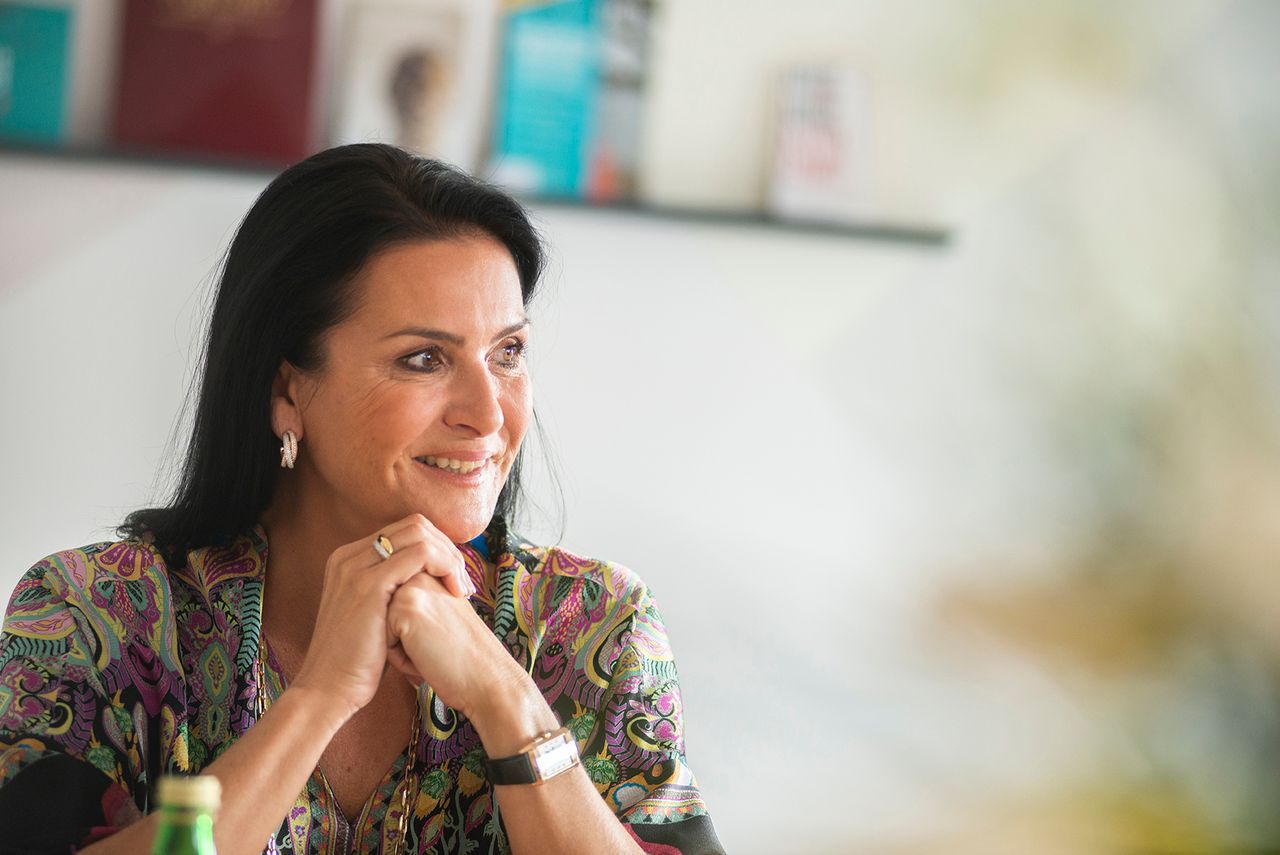
Back to Economia. There are rumours you are subsidising it with 55 million a year. When will it be no longer necessary for you to subsidise it, when will you get a return on your long-term investment?
Economia has considerable value as it is today. As an investment, as a company. Significantly greater than when we acquired it.
Do you get offers from potential buyers?
Yes. It’s a topic that comes up repeatedly, for many reasons. This also helps increase the value. But we have no reason whatsoever to sell.
Who from are the offers usually?
The absolute majority is from people who have some interests in Czechia.
You have withdrawn from the management of Economia as well as from the board of the BM Management consulting firm. Why?
The form of management changed. I used to be much more actively involved, now a significant portion of my time is taken by philanthropic activities all around the world. Zuzana Reznickova manages BMM, so no one else has to be involved at the moment. LBM also went through a transformation (the company operates luxury boutiques, author’snote).
We sold businesses that didn’t work and kept the interesting ones in Pařížská. However, I don’t have to deal with them daily. My husband is still pursuing financial investments, and if something interesting crops up, something that makes sense to him, he isn’t against investing here, as he does in other countries.
You have a woman in a top position, you too were in management for a long time. Now you are the patron of the Top Czech Women event. Why are you so actively involved, is this a kind of philanthropy?
Yes, and a natural one for me. For Hospodářské noviny, its one of several commercial events, while for me, it is more than that. I am the event’s patron. Some time back, I was involved in the Miss Czech competition, where we offered opportunities to the winners and other young ladies. The participants in this event are women with extensive experience, success, and achievements behind them. I think women should help one another and that they deserve the same respect, chance, and compensation as men. I am glad that through the Top Czech Women event, we are able to promote this.
Are these women commeasurable? They include businesswomen, corporate managers and women from the public sector.
That’s a complicated question, one we have been discussing since we began organizing this event. We even consider it as we explain to the jury members what it is they should focus on in their judgement. Factors include performance, contributions to society, and influence. In the case of businesswomen, we also factor in their business achievements. The winner should be someone who has achieved something significant in the current year compared to the previous year, and it should not automatically be a woman from the largest, strongest corporation.
To what extent this is the achievement of the given woman rather than of her family, company or the company’s PR?
It is all interlinked. If you want to succeed, you cannot ignore PR. Should these women underestimate the gift of communication, things would be more complicated as a result. But it is an indisputable fact that there are many more women who deserve to be on the shortlist.
Michaela Bakala (49)
At the age of 19, she became Miss Czechoslovakia. She graduated from the Film and TV School of the Academy of Performing Arts in Prague (FAMU), majoring in film and TV production, and was involved in organising the film festival in Karlovy Vary. She worked as the PR manager at Motokov, and between 2000 and 2003, she was the head of the press department of the Civic Democratic Party (ODS). In 2003, she set up the PR agency GoodComm and later on the beauty pageant Miss Czech. At present, she is primarily the mother of four children. She is involved in the management of the family’s assets and selected investments, with a particular focus on managing the philanthropic activities of the family. She is the Chair of the board of The Bakala Foundation in the CR and the Fondation Zdenek et Michaela Bakala in Switzerland. She is a Vice-chair of the board of trustees of the Vaclav Havel Library.
